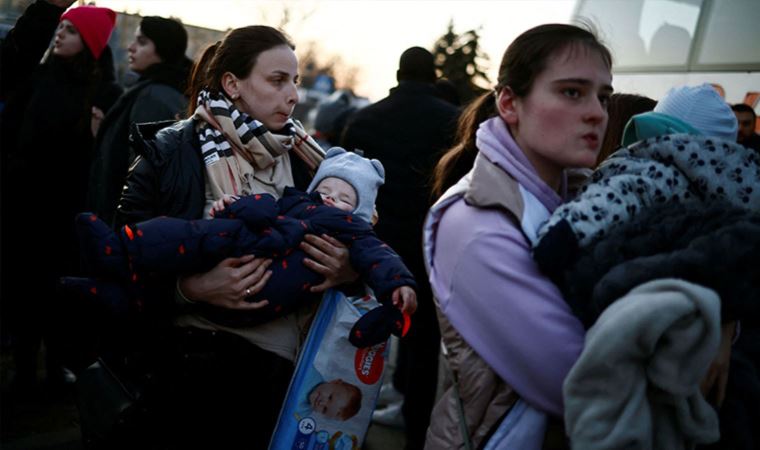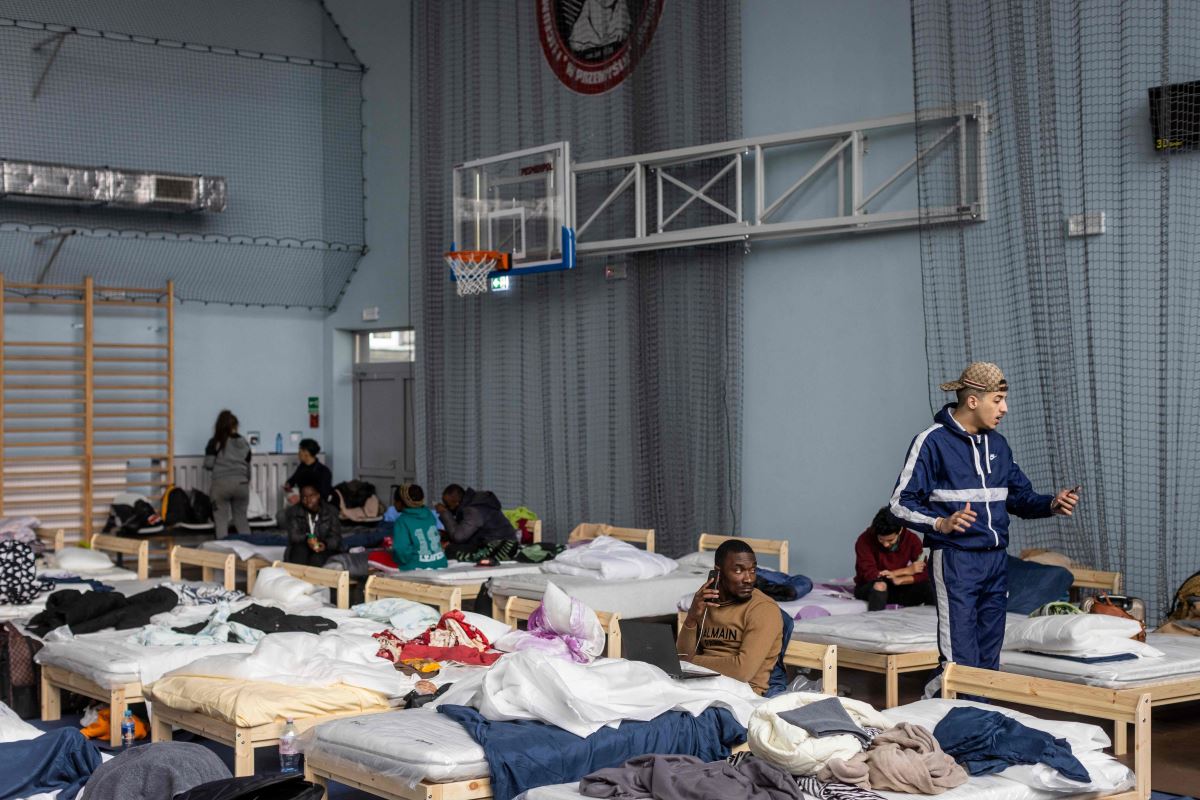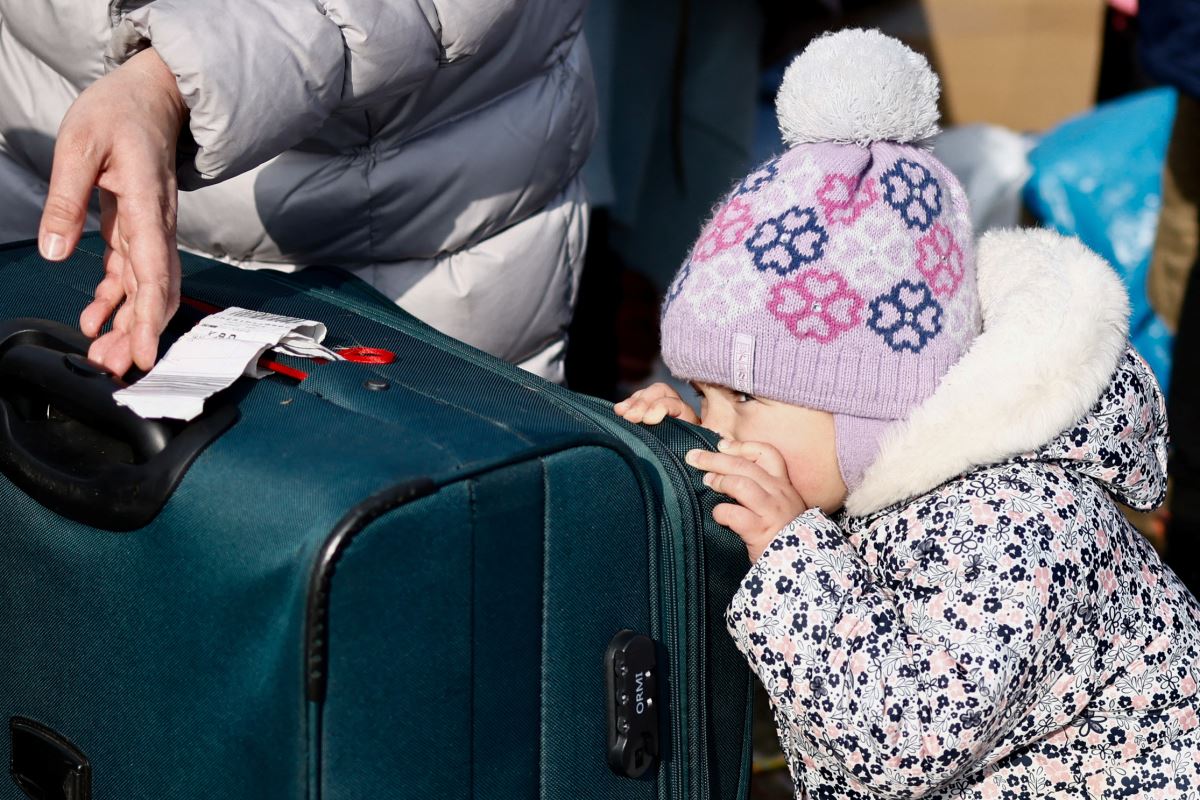European Union warns seven million refugees could be reached
The war risks forcing more than seven million people to flee their homes, leading to a wave of refugees that would dwarf the 2015 migration crisis, the European Union has warned.

Russia’s invasion is expected to set in motion a population movement unparalleled in Europe since the turmoil that followed the Second World War, when more than 12 million were displaced. “We are witnessing what could become the largest humanitarian crisis on our European continent in many, many years,” Janez Lenarcic, 54, the EU’s Slovenian crisis management commissioner, said yesterday.
According to The Times, at least half a million Ukrainians have crossed into neighbouring countries to the West since the start of the fighting, according to the UN refugee agency, the UNHCR. A further 127,000 are estimated to have moved to Russia from Russian-occupied territory in the far southeast of the country.
The Ukrainian authorities estimate that as many as 4.5 million of their 44 million people could ultimately leave. “The figures that we’re seeing are really astounding,” Shabia Mantoo, of the UNHCR, said. “Something of this proportion, we haven’t seen it in recent times.”
MOST IMMIGRATION WAS TO POLAND
So far the largest number, about 160,000, have gone to Poland, which is steeling itself to take as many as 1.5 million refugees over the crisis, equivalent to a city almost the size of Warsaw.
In a secondary school in Przemysl, on the border between Poland and Ukraine, some 100 beds with blankets and pillows line the wooden floor of a basketball court, offering a space to rest.

Anna Shevchenko’s husband, a director in an American company, stayed in Kyiv to fight as she made her way to Poland with three of their four children. The youngest, a six-year-old boy, has stayed in the capital with his father. “We were scared of what the journey [to Poland] would be like for him,” Shevchenko, 37, said. “I feel anxious and scared. Who knows what will happen?” All Shevchenko hopes for is to be reunited with her husband in Europe. “We’ll go when the war is over,” she said. “Maybe in three months, maybe six.”
Even among the uncertainty that comes with forced displacement, the makeshift shelter offers moments of respite, as children wrestle each other to the ground and mothers and daughters laugh. The men, however, were few and far between.
“You won’t see any men here between the ages of 18 and 60,” said Aram, one of the thousands of Polish volunteers who have offered to drive people across the country.
The young man was readying himself for a five-hour journey. Around him, other volunteers held signs bearing the names of Polish cities — Krakow, Warsaw — in what could have been a scene from an airport arrival, instead of a makeshift refugee centre, set up to welcome the latest wave of people.
But while tens of thousands of people queue up at the border to flee Russia’s war, many are also trying to find their way back to their families in Ukraine. Daryna, a 33-year-old chemist from Kyiv, was on holiday in Chile when news of the war reached her. In a matter of minutes she booked her flight and started her journey home.
On Monday, after an anguished trip that lasted three days, Daryna waited anxiously at the Ukraine-Poland border for the last leg of the voyage in the hope of soon being reunited with her husband and five-year-old son in Khmelnytskyi.
“It doesn’t feel real yet,” she said, standing inside the railway station of Jaroslaw, a town in southeast Poland. “My first task is to reach my son. I can’t think of anything else. 2014 was the preparation for what is happening now,” Daryna said. “We have to choose to stay and risk it or leave.” For her, there was no question as to the direction she was heading in.
The last time Gabriela Muñoz saw her husband, she was waving at him through the window of a train crammed with people fleeing Ukraine for Poland. Beside her, the couple’s five-year-old daughter Izabella sobbed uncontrollably, her tiny hands planted on the glass. Like other Ukrainian men aged 18 to 60, Muñoz’s husband heeded government orders to stay in Ukraine and take up arms against the Russian military, in a move that has led to countless families being split up. What once were families living under the same roof, Russia’s war against Ukraine had reduced to fragmented groups.
THE DILEMMA
Muñoz, a 27-year-old medical student who was due to graduate in two months, was forced to make a painful decision: stay in a warzone with her daughter or leave her Ukrainian husband and travel home to Ecuador. The young mother chose the latter.

What should have been an eight-hour train journey took Muñoz and her daughter more than a day. By Sunday night they had settled into the home of a Polish couple in Krakow and they will fly on to Ecuador tomorrow.
Desperation and fear filled the faces of thousands of people packed into Lviv’s main railway station yesterday as they tried to board one of the few trains heading west.
Oksana Dyatych, one of the young volunteers working at the station to help refugees entering the city and others seeking a way out, said: “At some point people realised that there were not enough trains and that realisation quickly turned to panic. Families and other groups to barge their way through and some fights broke out.”
